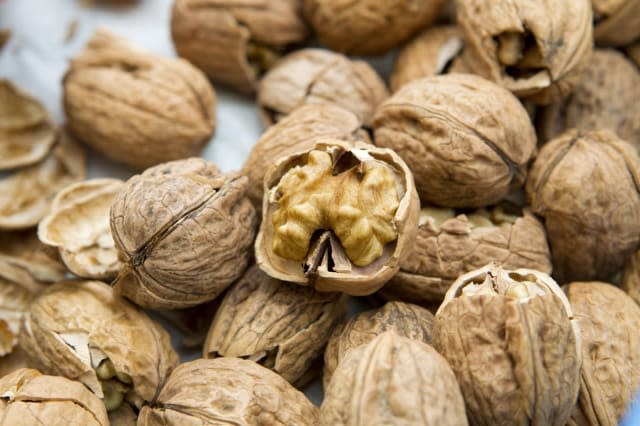Six best foods to boost your brain power

If you find it hard to concentrate or you want to improve your memory, it could be worth looking at your diet. Here are eight foods that help to boost brain power and delay mental decline in later life.
See also: People 'frequently misdiagnosed with common types of dementia'
See also: Eight hidden signs of dementia
1. Blueberries
Blueberries are one of the most potent foods when it comes to protecting the brain, particularly as we get older. One six-year study of older patients found that eating berries every day may help to delay brain ageing by up to 2.5 years.
Oxidative stress can accelerate the brain's ageing process and experts believe that the high level of polyphenols in blueberries can help to prevent cognitive decline.
Blueberries are bursting with antioxidants, which help neutralize some of the free radicals that cause damage to our DNA (responsible for ageing and involved in the development of diseases like cancer).
2. Oily fish
Essential fatty acids, such as omega 3s, are critical to brain function and have been shown to help protect against dementia and depression.
Oily fish like salmon, herring, mackerel and sardines, contain high levels of an omega-3 fatty acid called DHA, which is found in the grey matter of our brain. Research shows that learning and memory can be impaired if we don't have enough DHA.
Aim to eat oily fish 2-3 times a week or consider taking a supplement. Salmon is a great choice as it's also high in B vitamins including B12, which is essential for healthy nerves and brain cells.
3. Pumpkin seeds
If you're not a fan of fish, good plant sources of DHA include pumpkin seeds – as well as flaxseed, walnuts, and soya beans.
Pumpkin seeds make a great brain-boosting snack. In addition to being a good source of DHA, they are high in zinc, which is essential for improving memory and cognitive ability. The little seeds are also packed with stress-busting magnesium, B vitamins and tryptophan, which helps the body to produce the feel-good chemical serotonin.
3. Lean red meat
Like the rest of the body, the brain requires a good supply of oxygen in order to work its best. If you don't have enough iron in your diet, it can result in problems concentrating and feelings of lethargy.
If you suffer from fatigue and find it hard to focus, you might want to ask your doctor to test your blood for anaemia. Eating lean red meat, egg yolks, pulses such as red kidney beans and lentils, fortified breakfast cereals, broccoli, wholegrain cereals and wholemeal bread can help to boost your iron intake - or consider taking an iron supplement.
4. Dark chocolate
Chocoholics rejoice! Cacao – the raw, pure version of cocoa – is high in flavonols and has a protective effect on the brain. Cacao also contains magnesium, iron and zinc, which play a key role in the health of the brain and nervous system. In order to benefit, opt for dark chocolate with at least 70% cocoa.
5. Wholegrains
The brain requires fuel to work effectively, just like the rest of your body. If you're having problems concentrating, try increasing the amount of low-GI wholegrains you eat, which release glucose slowly into the bloodstream, keeping you mentally alert throughout the day. Choose 'brown' wholegrain cereals, such as granary bread, rice and pasta.
6. Broccoli
You know the importance of eating greens for your health, but if you want to boost your brain power, pile your plate with broccoli. The vegetable is a good source of vitamin K, which is known to improves mental functioning. Not only that, research suggests that glucosinolates (found in broccoli) can slow the breakdown of the neurotransmitter acetylcholine, which we need to keep our brains and our memories sharp. Studies have found a link between low levels of acetylcholine and Alzheimer's.
7. Eggs
Eggs yolks are rich in choline, which is needed to make brain cells and can help to produce the neurotransmitter acetylcholine, which is essential for learning and memory. Eggs are also a good source of B vitamins, which support the nervous system and brain.
A study of a group of older people with mild cognitive decline found that after two years of taking high doses of B6, B12 and folic acid there was significantly less brain shrinkage compared to a control group who took a placebo. B-rich foods include eggs, chicken, fish and leafy greens.
8. Drink coffee or tea
Finally, there's evidence to suggest that a caffeine habit might be good for your brain. According to one study, people who drink three to five cups of coffee a day are less likely to get Alzheimer's disease. Other studies suggest that drinking tea, particularly green tea, may help to protect against cognitive decline thanks to the high antioxidant content. While a cup of coffee can help to perk you up, it's best not to rely on it too much, as it can result in feeling jittery.



